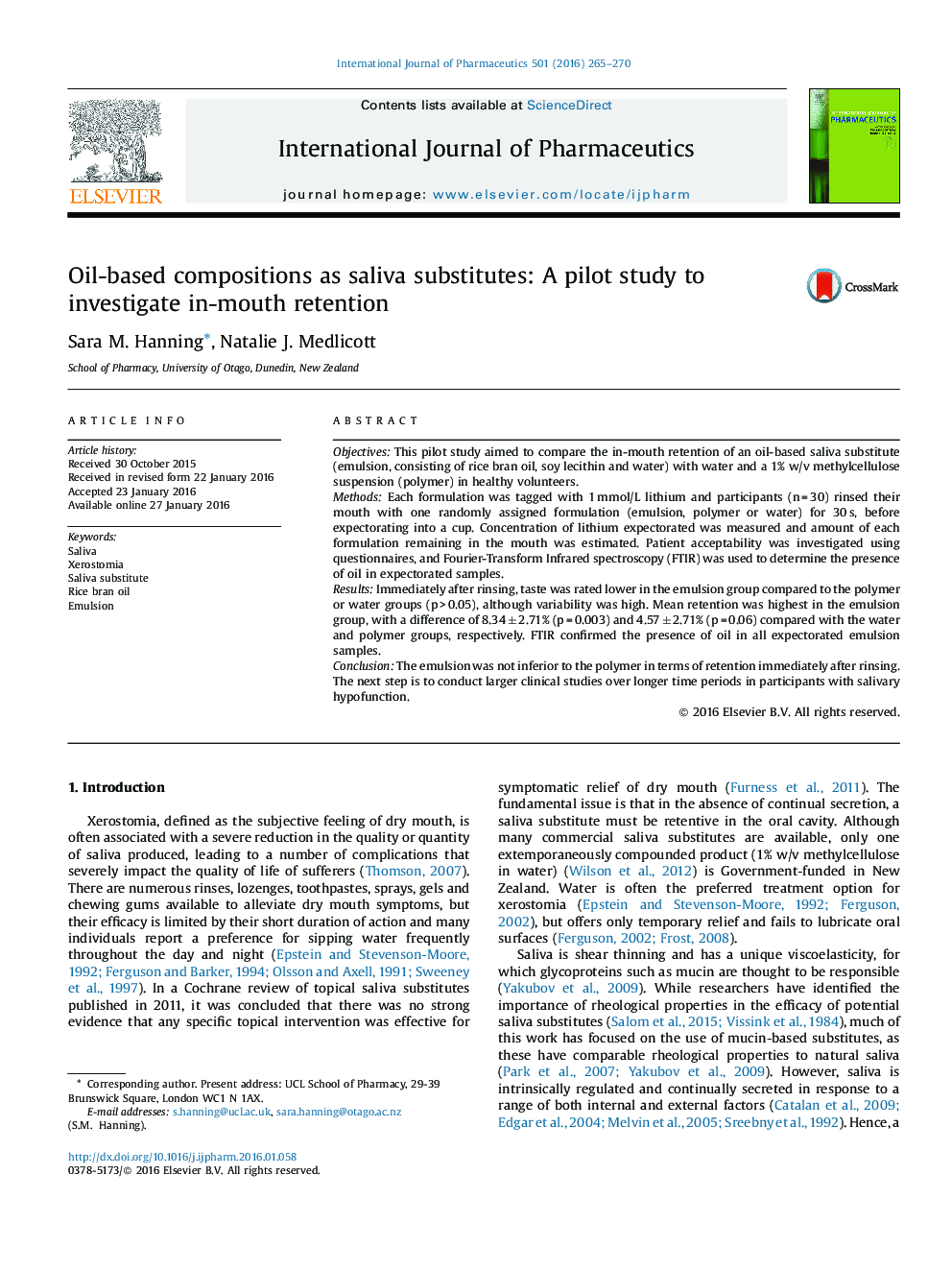| Article ID | Journal | Published Year | Pages | File Type |
|---|---|---|---|---|
| 2501092 | International Journal of Pharmaceutics | 2016 | 6 Pages |
ObjectivesThis pilot study aimed to compare the in-mouth retention of an oil-based saliva substitute (emulsion, consisting of rice bran oil, soy lecithin and water) with water and a 1% w/v methylcellulose suspension (polymer) in healthy volunteers.MethodsEach formulation was tagged with 1 mmol/L lithium and participants (n = 30) rinsed their mouth with one randomly assigned formulation (emulsion, polymer or water) for 30 s, before expectorating into a cup. Concentration of lithium expectorated was measured and amount of each formulation remaining in the mouth was estimated. Patient acceptability was investigated using questionnaires, and Fourier-Transform Infrared spectroscopy (FTIR) was used to determine the presence of oil in expectorated samples.ResultsImmediately after rinsing, taste was rated lower in the emulsion group compared to the polymer or water groups (p > 0.05), although variability was high. Mean retention was highest in the emulsion group, with a difference of 8.34 ± 2.71% (p = 0.003) and 4.57 ± 2.71% (p = 0.06) compared with the water and polymer groups, respectively. FTIR confirmed the presence of oil in all expectorated emulsion samples.ConclusionThe emulsion was not inferior to the polymer in terms of retention immediately after rinsing. The next step is to conduct larger clinical studies over longer time periods in participants with salivary hypofunction.
Graphical abstractFigure optionsDownload full-size imageDownload high-quality image (124 K)Download as PowerPoint slide
